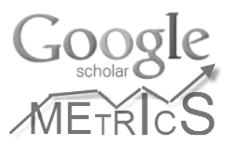Disfunção executiva no transtorno obsessivo - compulsivo e na SÃndrome de Tourette. Executive dysfunction in obsessive - compulsive disorder and the Tourette syndrome
Abstract
Resumo
Dentre as habilidades cognitivas mais estudadas recentemente estão as funções executivas (FE), que são essenciais na execução de tarefas novas e permitem o engajamento do indivÃduo em ações direcionadas a metas. Disfunções executivas são reconhecidas em diversos quadros psiquiátricos, inclusive no transtorno obsessivo-compulsivo (TOC) e na sÃndrome de Tourette (ST). Esta revisão teórica teve por objetivo ampliar o conhecimento a respeito da relação entre alterações de FE e os transtornos mencionados. Em sua maior parte, os estudos cientÃficos voltados à área têm apresentado uma estreita associação entre o prejuÃzo no funcionamento executivo, o TOC e a ST. Entretanto, há pesquisas que refutam esta afirmação, mostrando que não há ainda uma teoria determinante sobre esta relação. Além disso, mesmo dentre as pesquisas que compartilham a relação entre FE, TOC e ST, não é possÃvel afirmar quais habilidades executivas especÃficas estão prejudicadas em cada caso. Assim, o estudo permite concluir que, mesmo com o aumento do número de pesquisas realizadas, muitos questionamentos persistem sobre o prejuÃzo das funções executivas nestes transtornos psiquiátricos. Esses dados revelam a necessidade de mais pesquisas sobre o tema, o que pode vir a melhorar consideravelmente a qualidade dos diagnósticos, prognósticos e
tratamentos realizados.
Palavras-chave: Funções executivas; Transtorno Obsessivo-Compulsivo; sÃndrome
de Tourette.
Abtract
Among the cognitive abilities more studied recently are the executive functions (EF), that are essential in the execution of new tasks and able the individual commitment in goal directed actions. Executive dysfunctions are recognized in diverse psychiatric conditions, including the Obsessive-compulsive Disorder (OCD) and the Tourette Syndrome (TS). This theoretical revision aimed to extend the knowledge about the relation between EF damages and these mentioned disorders. In the greater part, the scientific studies in the area have presented a near association between the EF damage, the OCD, and the TS. However, there are researches that refute these findings, showing that there is still not a determinant theory about this relationship. Beyond that, even among the researches that share the relation between EF, OCD, and TS, is not possible affirm which specific executive abilities are injured in each case. Then, the study concludes that, even with the increase of the number of researches carried out, many questionings persist about the EF damage in psychiatric disorders. These data reveal the need of more researches about the subject, what can improve considerably the quality of the diagnoses, prognostics and treatments carried out.
Keywords: Executive functioning; obsessive compulsive disorder; Tourette
Syndrome.
Downloads
Published
How to Cite
Issue
Section
License
Articles published in this journal are protected under the Creative Commons Attribution-NonCommercial-ShareAlike 4.0 International (CC BY-NC-SA 4.0) license. This means that authors retain full rights over their research and publications at all times. As a journal, we fully respect and promote the principles of open access established by this license, allowing the work to be shared, adapted, and distributed for non-commercial purposes, provided that appropriate credit is given to the authors and any derivative works are licensed under the same terms.
Authors are responsible for obtaining the required permission when they wish to reproduce part of the material (figures, etc.) from other publications.
Likewise, CNPs allows authors to host in their personal sites or other repositories that they deem convenient the Final and Definitive Version of the published article with the format assigned by the journal. In no case do we allow access to preprints of the article under evaluation or already published.
When submitting an article to CNPs you are aware that all the contents of CNPs are under a Creative Commons License. In which it is allowed to copy and share the contents freely, always making reference to the origin of the publication and its author.













